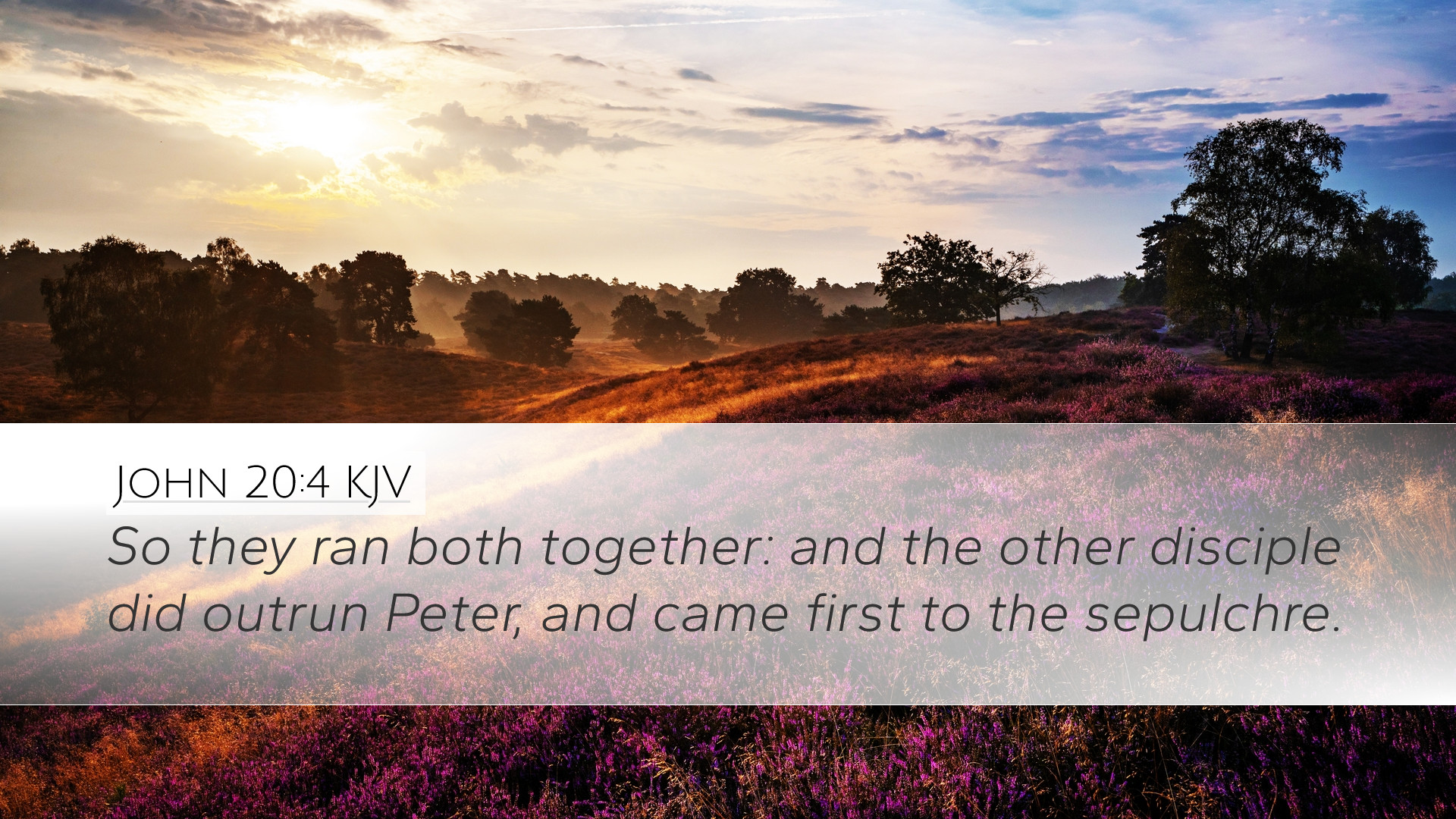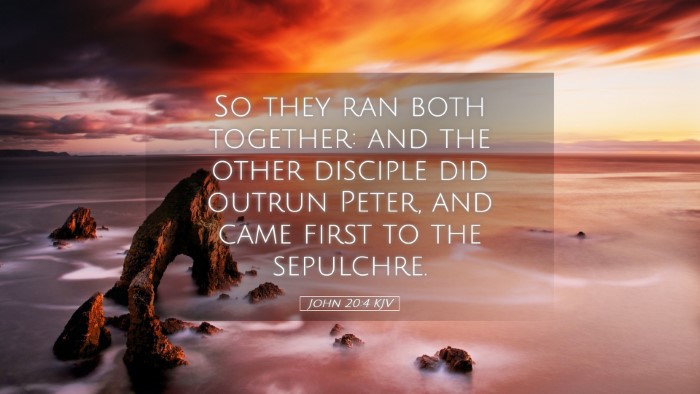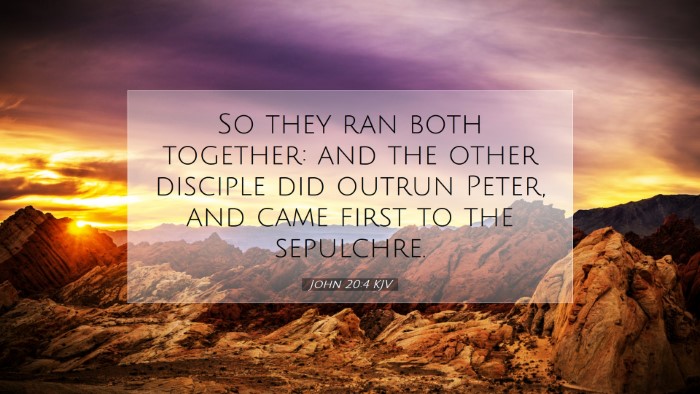Commentary on John 20:4
Verse Context: John 20:4 states, "So they ran both together: and the other disciple did outrun Peter, and came first to the sepulchre." This moment is pivotal in the narrative of the resurrection, illustrating the urgency and excitement of the disciples following the report of the empty tomb.
Insights from Commentaries
Matthew Henry's Commentary
Matthew Henry observes that the running of the disciples reflects their earnestness and desire to learn the truth about the resurrection. This action signifies that they were deeply affected by the news of the empty tomb. Henry notes that the "other disciple," presumed to be John, reaching the sepulchre first, suggests not only his physical agility but also his spiritual insight. John’s willingness to race to the tomb illustrates the different responses of individuals to the resurrection; while Peter later enters the tomb (John 20:6), John emphasizes his belief at the sight of the empty graveclothes. This thematic contrast lays the groundwork for understanding faith's development among the disciples.
Albert Barnes' Notes on the Bible
Albert Barnes highlights the significance of speed and effort in the pursuit of truth, revealing a deeper spiritual desire among the disciples. He emphasizes that John mentioned that he outran Peter to illustrate the importance of being the first to confirm the resurrection—a critical cornerstone of Christian faith. Furthermore, Barnes draws attention to the relationship between the two disciples, illustrating how their individual characteristics can shape their discipleship. John, being younger and faster, symbolizes the eager heart that seeks truth, while Peter represents the steadfast leadership in the early church. Barnes’ analysis encourages readers to recognize their unique roles within the body of Christ.
Adam Clarke's Commentary
Adam Clarke elaborates on the significance of the disciples' race to the tomb, suggesting that it reveals not only their passion but also the competitive nature of their relationship. Clarke posits that the reference to their running should evoke curiosity about how unity and rivalry exist in the call to follow Christ. He underscores that while John reached the tomb first, Peter ultimately exemplified the leadership necessary for the establishment of the early church. Clarke appeals to readers to see this moment as a call to fervent pursuit of truth complemented by community and mutual support among believers.
Theological Implications
The account of John 20:4 serves as a powerful narrative that presents valuable theological implications. It emphasizes the transformative power of the resurrection, sparking a palpable urgency in the hearts of those who have followed Christ. This reaction can inspire believers today to pursue a closer relationship with God and to earnestly seek the truth about Jesus’ resurrection.
Spiritual Urgency
- Desire for Truth: The race to the tomb is an embodiment of every believer’s quest for truth in their spiritual journey. They are encouraged to seek God's revelation actively.
- Faith in Action: John’s response illustrates that faith often manifests in action. The desire to witness the empty tomb reflects a proactive approach to faith.
The Nature of Discipleship
- Unique Roles: Each disciple, with their contrasting characteristics, points to the unique roles individuals play in the body of Christ. This encourages believers to recognize their gifts and how they contribute to the church.
- Dynamic Relationships: The interplay between John and Peter serves as a reminder of the community aspect of discipleship, highlighting the importance of support, competition, and growth among believers.
Conclusion
John 20:4 encapsulates a moment filled with urgency, faith, and the promise of resurrection. Insights from Matthew Henry, Albert Barnes, and Adam Clarke enrich our understanding of this passage by contextualizing the actions of the disciples within their spiritual journey. Their remarks remind pastors, students, theologians, and Bible scholars of the active pursuit of truth and the diversity of discipleship, inviting them into a deeper exploration of what it means to follow Christ in light of the resurrection.


